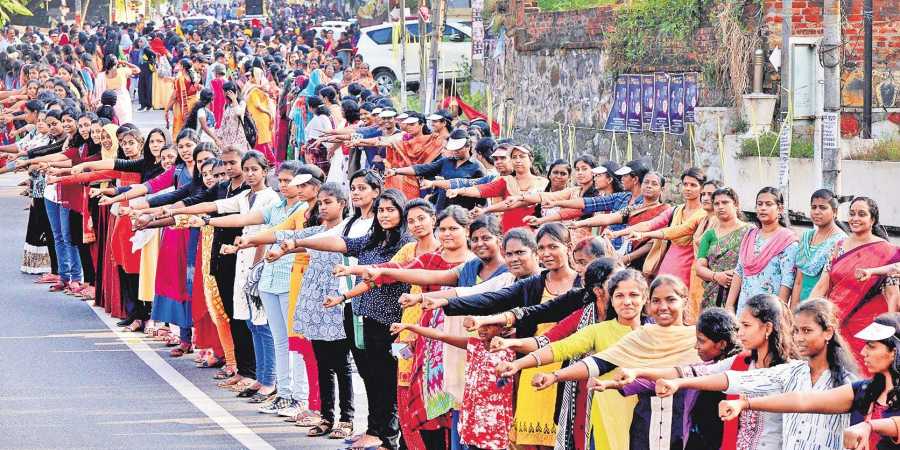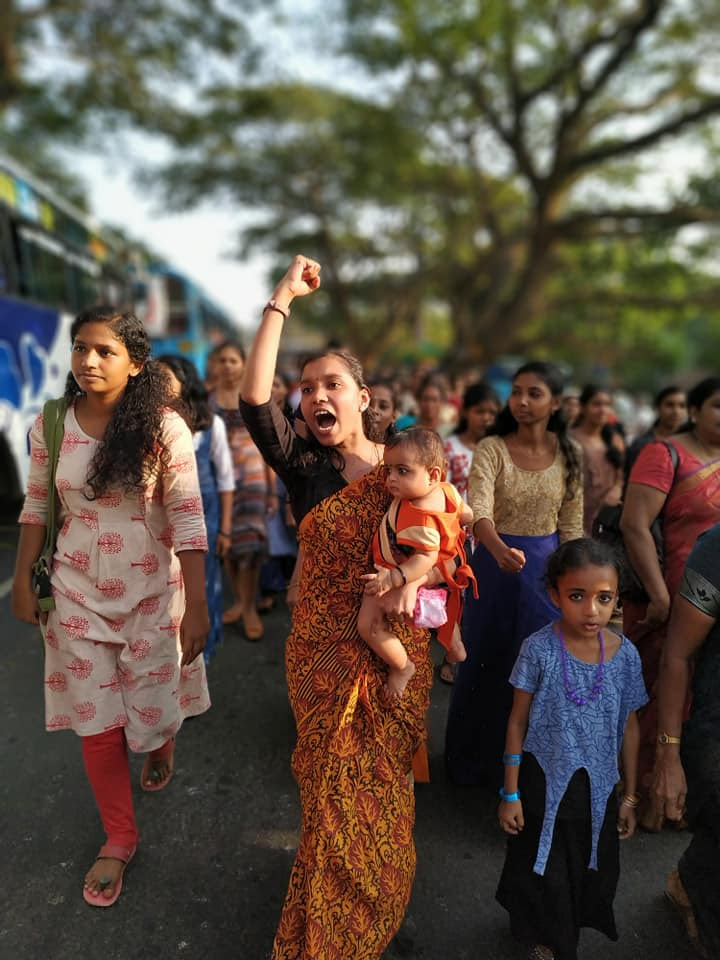
On Jan. 1, 5.5 million women in the India state of Kerala formed a human wall in an act of defiance against gender oppression. The immediate inspiration came from growing protests happening around the Sabarimala hill temple which prohibits women of childbearing age from entering. Back in October, India’s Supreme Court had declared the ban unconstitutional.
Mobilizations began occurring after several women were denied their right to enter into the temple by priests and their far-right defenders. A fightback was organized by the Communist Party of India (Marxist), which co-governs the state of Kerala as part of the Left Democratic Front. Most participants in the ensuing movement were not women who necessarily wanted to visit the temple themselves. They participated in the action because they recognized it as part of the broader struggle for women’s rights.
The chain was 386 miles long, coursing through the 14 districts from Kasargod in the north to Thiruvananthapuram, the state capital, in the south. Men formed a parallel human chain in a show of support to the women.
Brinda Karat, a leader in the Communist Party of India (Marxist) and former general secretary of the All India Democratic Women’s Association said, “Today’s wall of women was aimed at strengthening gender equality; women should no longer be pushed into dark corners.”


